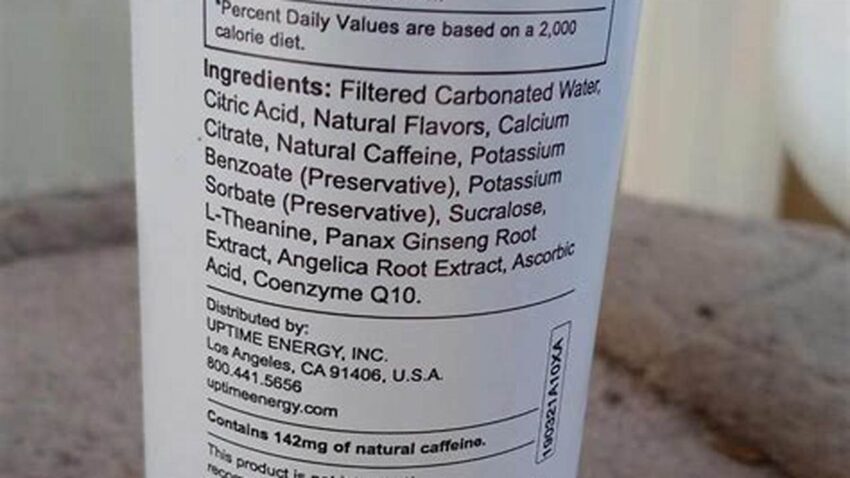Consumers are increasingly interested in understanding the composition of their food and beverages. This heightened awareness extends to energy drinks, where ingredient transparency is crucial for informed choices. Examining the specific components of an energy drink allows consumers to assess potential benefits and drawbacks, aligning their consumption with personal health and dietary goals. This detailed exploration provides valuable insights into a popular energy drink’s formulation.
Energy Blend
Energy drinks often contain a blend of stimulants, typically including caffeine, guarana, and taurine. These ingredients contribute to the perceived energy boost and enhanced alertness associated with these beverages.
Vitamins and Minerals
Many energy drinks are fortified with B vitamins, often cited for their role in energy metabolism. Some formulations may also include other vitamins and minerals.
Sweeteners
Sugar, high-fructose corn syrup, or artificial sweeteners are commonly used to provide sweetness and enhance palatability.
Flavorings
Natural or artificial flavorings are added to create distinct and appealing taste profiles.
Colorings
Artificial colors are sometimes used to enhance the visual appeal of the beverage.
Acidity Regulators
Ingredients like citric acid are used to adjust the pH level and contribute to the tartness of the drink.
Preservatives
Preservatives help maintain product freshness and extend shelf life.
Water
Water serves as the primary solvent in the beverage, carrying the dissolved ingredients.
Tips for Consuming Energy Drinks
Moderation: Excessive consumption can lead to adverse health effects. It’s important to limit intake.
Hydration: Energy drinks should not replace water as the primary source of hydration. Maintaining adequate water intake is crucial for overall health.
Awareness of Ingredients: Carefully review the ingredient list to identify potential allergens or sensitivities.
Consultation with Healthcare Professional: Individuals with underlying health conditions should consult with a healthcare professional before consuming energy drinks.
Frequently Asked Questions
What are the primary stimulants in this type of beverage?
Caffeine, guarana, and taurine are common stimulants found in these drinks.
Are there sugar-free options available?
Many brands offer sugar-free or low-sugar alternatives using artificial sweeteners.
What is the role of B vitamins in energy drinks?
B vitamins are often included for their purported role in supporting energy metabolism, although their actual effectiveness in this context may vary.
Are there any potential risks associated with consuming these beverages?
Excessive consumption can lead to various health issues, including insomnia, anxiety, and cardiovascular problems. Moderation is key.
How can I make informed choices about consuming energy drinks?
By understanding the ingredients and their potential effects, consumers can make choices aligned with their health goals. Consulting with a healthcare professional can provide personalized guidance.
Ultimately, informed consumption is paramount. By understanding the composition of energy drinks, individuals can make choices that best support their health and well-being.

